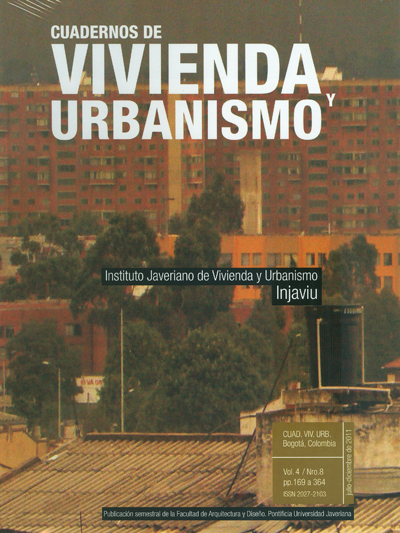Abstract
Venezuelan and Latin American cities are characterized by hybridity-miscegenation of formalinformal urban fabric and its unsustainability resulting from the urbanization of poverty, dispersion, asymmetry in quality of life and citizenship deficit. To overcome these deficits Venezuela runs in policies - social programs such as Full Citizenship (PCP), programs for the governorship of Zulia and missions of the national government. The article reviews briefly the potential of these programs to build citizenship and sustainable cities from its formulation as policy-program. The programs are characterized and compared considering: objectives, actors involved, management models and values.It is concluded that the three programs agree on the diagnosis of the problem and differ in the management model applied, in the actors involved and the values assumed. The PCP strengthens the social capital, empowering citizens and national and state programs through marketing results, increase the legitimacy and political capital by using subsidies, differentially reinforce dependency and hinder the formation of citizenship and sustainable cities.
This journal is registered under a Creative Commons Attribution 4.0 International Public License. Thus, this work may be reproduced, distributed, and publicly shared in digital format, as long as the names of the authors and Pontificia Universidad Javeriana are acknowledged. Others are allowed to quote, adapt, transform, auto-archive, republish, and create based on this material, for any purpose (even commercial ones), provided the authorship is duly acknowledged, a link to the original work is provided, and it is specified if changes have been made. Pontificia Universidad Javeriana does not hold the rights of published works and the authors are solely responsible for the contents of their works; they keep the moral, intellectual, privacy, and publicity rights.
Approving the intervention of the work (review, copy-editing, translation, layout) and the following outreach, are granted through an use license and not through an assignment of rights. This means the journal and Pontificia Universidad Javeriana cannot be held responsible for any ethical malpractice by the authors. As a consequence of the protection granted by the use license, the journal is not required to publish recantations or modify information already published, unless the errata stems from the editorial management process. Publishing contents in this journal does not generate royalties for contributors.


